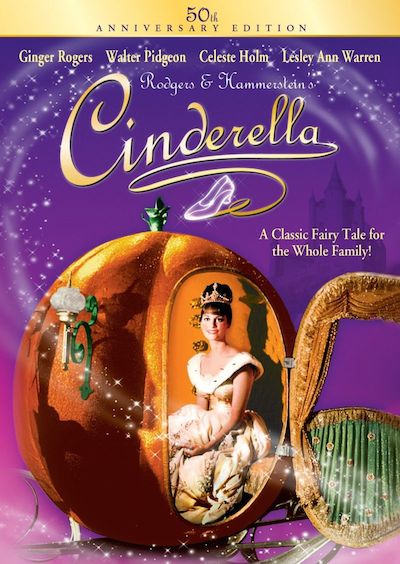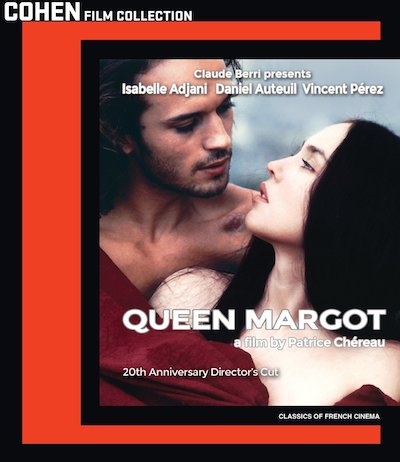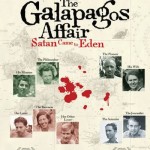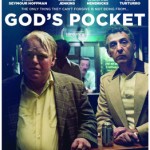In Captain America: The Winter Soldier…yeah, right, like you haven’t already seen the No. 2 box-office hit of the year, that rare pre-summer release that held off all comers for the top spot until its companion in the Marvelverse, Guardians of the Galaxy, knocked it off its perch. Which relieves me of the onerous task of plot summary, a good thing, as there’s a lot of plot to summarize. Suffice it to say my favorite superhero, Steve Rogers (the perfect Chris Evans), is back, and while I missed the WWII/period Brooklyn flavor of his debut he’s made been to fit perfectly in the 70s–that is, the paranoia-drenched atmosphere of mid-70s films like Three Days of the Condor (1975) and All the President’s Men (1976), adapted to a contemporary, post-Avengers scenario of homeland security run amuck. Atop the food chain in a change of pace is none other than the star of those classics, Robert Redford, a canny casting move on the part of brothers-in-viewfinders Anthony and Joe Russo, who quote from The Manchurian Candidate (1962) in his best scene. Steal from the best–but the two also bring to the table some of the very best action in these films, particularly the breath-holding elevator sequence, and really marshal the hardware, with massive gunships providing the climax. Old hands Samuel L. Jackson and Scarlett Johansson have a trick or two up their sleeves as well, and outside of the clumsily handled business with the “Winter Soldier” of the title, it’s a rip-roaring ride that, duh, looks and sounds amazing on Blu-ray.
The supplementary material doesn’t provide vibranium-level excitement yet a brief making-of, a set visit with scene-stealing newcomer Anthony Mackie, deleted scenes, and a gag reel make for decent post-show viewing, and there is an enthusiastic commentary featuring the Russos and screenwriters Christopher Markus and Stephen McFeely. With the Hollywood fun machine asleep for a few more weeks, take Cap to your house and let him superpower your home theater.
 Before there were comic book superheroes, there were fairy tale characters–and, because they offer enchantment and magical powers, and appeal to wide audiences, they’re getting their own movies, and TV shows, and origins stories, the whole franchise megillah. (It doesn’t hurt that they’re in the public domain and not with Marvel or DC Comics.) Cinderella has been with us since the late 17th century, and we’ve seen her and those famous slippers in many guises since. Disney’s animated Cinderella (1950), the musical The Slipper and the Rose (1976), and Drew Barrymore’s “post-feminist” Ever After (1998) have their fans, and, thanks to its illustrious composers, Rodgers & Hammerstein’s Cinderella, their only musical written for television, has cultural cachet as well.
Before there were comic book superheroes, there were fairy tale characters–and, because they offer enchantment and magical powers, and appeal to wide audiences, they’re getting their own movies, and TV shows, and origins stories, the whole franchise megillah. (It doesn’t hurt that they’re in the public domain and not with Marvel or DC Comics.) Cinderella has been with us since the late 17th century, and we’ve seen her and those famous slippers in many guises since. Disney’s animated Cinderella (1950), the musical The Slipper and the Rose (1976), and Drew Barrymore’s “post-feminist” Ever After (1998) have their fans, and, thanks to its illustrious composers, Rodgers & Hammerstein’s Cinderella, their only musical written for television, has cultural cachet as well.
In its 1957 debut, a live telecast, 107 million viewers tuned in to watch Julie Andrews, who was then on Broadway in My Fair Lady, and Brandy was no slouch with viewers either in a 1997 version, co-produced by its fairy godmother, Whitney Houston. The one that hit boomers where they lived was the 1965 broadcast, which was repeated annually for several years. The show made it to DVD in 2002, in a dowdy, before-the-ball transfer that Rodgers & Hammerstein’s Cinderella (50th Anniversary Edition) improves upon, within limitations of the original videotape. Marking the screen debut of the 18-year-old Lesley Ann Warren (who would grow up to give Andrews a hard time in 1982’s Victor Victoria), it’s thoroughly (prince!) charming, with a blue-chip supporting cast (the always terrific Celeste Holm and Jo Van Fleet as the fairy godmother and the stepmother, Walter Pidgeon and Ginger Rogers, no less, as the king and queen, future General Hospital star Stuart Damon as the prince, and the venerable Pat Carroll and Barbara Ruick as the stepsisters). A song cut from South Pacific and repurposed, “Loneliness of Evening,” complements Cinderella’s “In My Own Little Corner” and other favorites, and there’s a nostalgic making-of with some of the some of the cast. The Broadway adaptation of the program has posted a closing notice, but thanks to Shout Factory’s promotion of the title this version won’t be turning into a pumpkin after midnight anytime soon.
 In the words of the late, lamented Joan Rivers, “Oh, grow up!” It’s time to leave childish things behind and wallow in the blood and thunder of the great Queen Margot, one of my favorite historical epics…and a movie I’d never seen before until this disc. Its cuts-happy US distributor, Miramax, got its hands on it following its successful debut at the Cannes Film Festival in 1994 and reworked it to beef up a romantic angle. I can’t say it failed–I swooned for it, and it was an art house hit that, frustratingly, was only available in that shortened, sweetened version on VHS and a less-than-regal non-anamorphic DVD. Reconstituted to its full length, La Reine Margot has made the leap to Blu-ray, and it is spectacular–in eye-filling costumes and decor, yes, but also in insight to a bygone, barbarous age, as court intrigue in 16th century France pitting Catholicism against Protestantism culminated in the St. Bartholomew’s Day Massacre, amidst a “red wedding” that exceeded the fevered imaginings of Game of Thrones author George R.R. Martin. Making an assured screen debut as director and co-writer, adapting a novel by Alexandre Dumas, of The Three Musketeers and The Count of Monte Cristo, Patrice Chereau moves the chess pieces with precision, and has assembled a dream cast of pawns: Isabelle Adjani, Vincent Perez, Daniel Auteuil, Jean Hugues-Anglade, Asia Argento, and Virna Lisi as the poisoner Catherine de Medici, all splendid. Another top-notch release from the Cohen Media Group (which just added New York’s Quad Cinema to its holdings) includes the re-release trailer and an informative commentary by Richard Pena, the former director of the New York Film Festival.
In the words of the late, lamented Joan Rivers, “Oh, grow up!” It’s time to leave childish things behind and wallow in the blood and thunder of the great Queen Margot, one of my favorite historical epics…and a movie I’d never seen before until this disc. Its cuts-happy US distributor, Miramax, got its hands on it following its successful debut at the Cannes Film Festival in 1994 and reworked it to beef up a romantic angle. I can’t say it failed–I swooned for it, and it was an art house hit that, frustratingly, was only available in that shortened, sweetened version on VHS and a less-than-regal non-anamorphic DVD. Reconstituted to its full length, La Reine Margot has made the leap to Blu-ray, and it is spectacular–in eye-filling costumes and decor, yes, but also in insight to a bygone, barbarous age, as court intrigue in 16th century France pitting Catholicism against Protestantism culminated in the St. Bartholomew’s Day Massacre, amidst a “red wedding” that exceeded the fevered imaginings of Game of Thrones author George R.R. Martin. Making an assured screen debut as director and co-writer, adapting a novel by Alexandre Dumas, of The Three Musketeers and The Count of Monte Cristo, Patrice Chereau moves the chess pieces with precision, and has assembled a dream cast of pawns: Isabelle Adjani, Vincent Perez, Daniel Auteuil, Jean Hugues-Anglade, Asia Argento, and Virna Lisi as the poisoner Catherine de Medici, all splendid. Another top-notch release from the Cohen Media Group (which just added New York’s Quad Cinema to its holdings) includes the re-release trailer and an informative commentary by Richard Pena, the former director of the New York Film Festival.
 In a career full of twists and turns, some hair-raising, the 72-year-old Werner Herzog has emerged a hip, beloved German uncle, appearing on The Simpsons, The Boondocks, and, soon, Parks and Recreation, playing the bad guy in the Tom Cruise flick Jack Reacher, and reading the anti-children’s book Go the F**K to Sleep. His pop culturization began with the mockumentary Incident at Loch Ness (2004), in which, playing himself, he hunts for Nessie with a camera crew. A fascinatingly diverse career earns a magnificent Blu-ray box set, Herzog: The Collection, which is available from Shout Factory. Scratch the surface on this lavish assemblage–13 discs containing 16 features and documentaries, 15 of them new to Blu–and you’ll just want to keep going, as if in a castle full of tantalizing secret rooms.
In a career full of twists and turns, some hair-raising, the 72-year-old Werner Herzog has emerged a hip, beloved German uncle, appearing on The Simpsons, The Boondocks, and, soon, Parks and Recreation, playing the bad guy in the Tom Cruise flick Jack Reacher, and reading the anti-children’s book Go the F**K to Sleep. His pop culturization began with the mockumentary Incident at Loch Ness (2004), in which, playing himself, he hunts for Nessie with a camera crew. A fascinatingly diverse career earns a magnificent Blu-ray box set, Herzog: The Collection, which is available from Shout Factory. Scratch the surface on this lavish assemblage–13 discs containing 16 features and documentaries, 15 of them new to Blu–and you’ll just want to keep going, as if in a castle full of tantalizing secret rooms.
Where to begin? I’d say with his collaborations with the notorious Klaus Kinski, maybe with the most accessible, 1979’s Nosferatu the Vampire, one of the great remakes (if one of the lesser transfers in this set). Then hit the Amazon-made conquistador epic Aguirre, the Wrath of God (1972), the one that put Herzog on the map as one of cinema’s great explorers, and the 1890s-set Fitzcarraldo (1982), as incredible for its behind-the-scenes stories of conflict between Herzog, the crew, and the volatile actor as for the narrative being shot, in which a 320-ton steamship is moved over a hill minus special effects, with period equipment. After the more surreal Woyzeck (1979) and the slavery drama Cobra Verde (1987), another tormented shoot, enjoy Herzog’s affectionate documentary about his temperamental star, My Best Fiend (1999). The stories are incredible. (Hear more on the various commentary tracks sprinkled throughout the discs.)
The documentaries, which can blur the line between fact and fiction, are just as compelling. Lessons of Darkness (1992) is a tone poem made from the oil fires that waged uncontrollably in Kuwait in the wake of the Gulf War; it’s a stunning spectacle. More down to earth, so to speak, is the incredible survival tale Little Dieter Needs to Fly (1997), about Navy pilot and Vietnam POW Dieter Dengler, the subject of a feature film not part of this set, 2007’s Rescue Dawn. There’s no reason for complaint, however, as the breadth of material here is outstanding, from the pint-sized carryings-on of Even Dwarfs Started Small (1970) to his films with the “unknown soldier of cinema,” Bruno S. If your setup is Region B-capable, you may also consider obtaining a similar set from the British Film Institute, which has some different extras and titles; by itself, this one is a feast, and surely one of the best packages of the year.
 Now on DVD and VOD, The Galapagos Affair: Satan Came to Eden tells a true-life story stranger than most fiction, and if mystery and intrigue in exotic locales are your cup of tea, pounce. (Amazon, iTunes, and Netflix have it.) The directors of the beautifully realized history Ballet Russes (2005) have a much wilder story to convey, of paradise found and lost. In 1929, a misanthropic German doctor and his mistress up and left Europe for Floreana, a place better suited for marine iguanas than human habitation. The press picks up on their Robinson Crusoe-ish story, and new arrivals–a family fleeing the winds of war, a haughty “baroness” who dreams of hotels–disrupt an already fraught escape from civilization. Then people begin to disappear…Made without recreations, as the descendants of the pioneers preserved all the diaries, photos, and even film left by the participants, and further revivified by gorgeous present-day footage and a terrific cast of voice actors including Cate Blanchett, Connie Nielsen, and Josh Radnor, this is an enthralling slice of some very tempestuous lives, and the includes deleted scenes and a Q&A with the filmmakers.
Now on DVD and VOD, The Galapagos Affair: Satan Came to Eden tells a true-life story stranger than most fiction, and if mystery and intrigue in exotic locales are your cup of tea, pounce. (Amazon, iTunes, and Netflix have it.) The directors of the beautifully realized history Ballet Russes (2005) have a much wilder story to convey, of paradise found and lost. In 1929, a misanthropic German doctor and his mistress up and left Europe for Floreana, a place better suited for marine iguanas than human habitation. The press picks up on their Robinson Crusoe-ish story, and new arrivals–a family fleeing the winds of war, a haughty “baroness” who dreams of hotels–disrupt an already fraught escape from civilization. Then people begin to disappear…Made without recreations, as the descendants of the pioneers preserved all the diaries, photos, and even film left by the participants, and further revivified by gorgeous present-day footage and a terrific cast of voice actors including Cate Blanchett, Connie Nielsen, and Josh Radnor, this is an enthralling slice of some very tempestuous lives, and the includes deleted scenes and a Q&A with the filmmakers.
 Philip Seymour Hoffman died six months ago but thanks to his participation in The Hunger Games we’ll be seeing him onscreen until November 2015. His last starring role, in A Most Wanted Man, was outstanding, and he was also in God’s Pocket, a noir-ish sort-of comedy worth a look for his presence, mixing it up with John Turturro and Richard Jenkins. He and Turturro and small-time crooks eking out capers in the close-mouthed Rust Belt community of the title; when his unloved stepson is killed and he can’t pick up the tab for the burial (the excellent Eddie Marsan is the creep of a funeral director), he’s forced to take action, only to find more frustration and a past-it newspaper columnist (Jenkins) with a yen for his neglected wife (Christina Hendricks). Pete Dexter’s work is hard to get right on film and while Mad Men‘s John Slattery, working the whole color-drained 70s vibe thing, is game for the task as director and co-writer in his feature debut it’s something of a losing proposition, never finding the right tone. Some of the off-key notes, however, are a treat to listen to in a decently supplemented package, and Slattery’s commentary track hits all the bases. Phil, you are missed.
Philip Seymour Hoffman died six months ago but thanks to his participation in The Hunger Games we’ll be seeing him onscreen until November 2015. His last starring role, in A Most Wanted Man, was outstanding, and he was also in God’s Pocket, a noir-ish sort-of comedy worth a look for his presence, mixing it up with John Turturro and Richard Jenkins. He and Turturro and small-time crooks eking out capers in the close-mouthed Rust Belt community of the title; when his unloved stepson is killed and he can’t pick up the tab for the burial (the excellent Eddie Marsan is the creep of a funeral director), he’s forced to take action, only to find more frustration and a past-it newspaper columnist (Jenkins) with a yen for his neglected wife (Christina Hendricks). Pete Dexter’s work is hard to get right on film and while Mad Men‘s John Slattery, working the whole color-drained 70s vibe thing, is game for the task as director and co-writer in his feature debut it’s something of a losing proposition, never finding the right tone. Some of the off-key notes, however, are a treat to listen to in a decently supplemented package, and Slattery’s commentary track hits all the bases. Phil, you are missed.





Comments